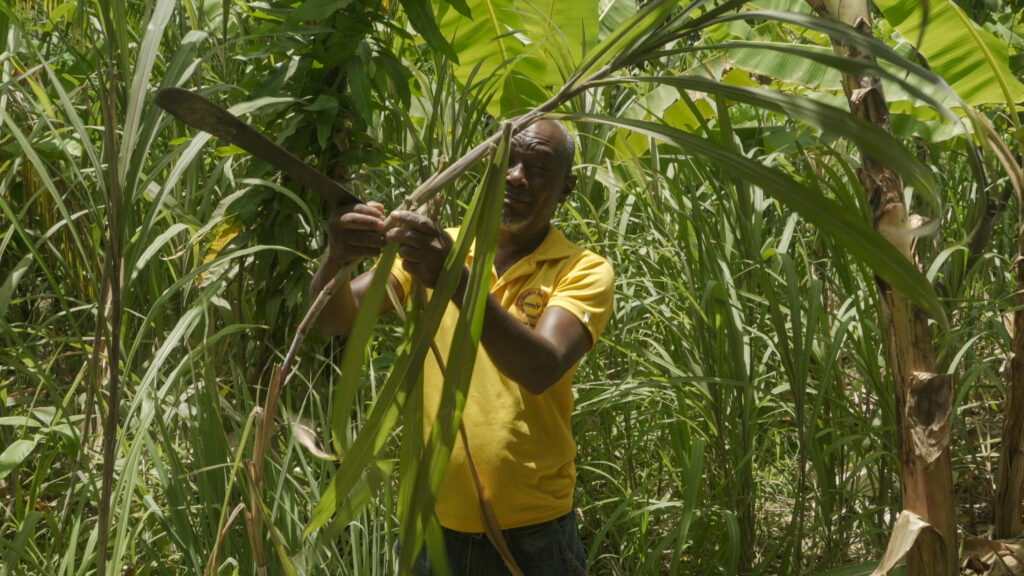Haiti – Through training, the distribution of seeds and goats, and the introduction of new techniques, our partner Heifer is helping improve agriculture in north-west Haiti to fight hunger.
In the northwest of Haiti, it rains even less than elsewhere in the country, and harvests either fail or do not provide enough food. There is no such thing as ‘food security’, and poverty and hunger affect many vulnerable families. The organisation Heifer has been implementing the GIRE-SECALM project since 2019 – in a consortium with Join For Water, ODRINO and Action contre la faim. Together we are improving food security in the 3 river basins of the Denisse, Catinette and Moustiques rivers. The project runs until December 2022 and is supported by the European Union.
Building food security
Food security rests on 2 main pillars: food availability and food stability.
The availability can be increased by improving the knowledge and skills of farmers in agricultural production and, for example, by expanding the livestock population.
The stability of food security can be improved by developing land for agriculture, according to the principles of Integrated Water Resources Management. This includes risk management, so that in case of disasters such as flooding after heavy rainfall, the infrastructure and the population are protected.
Training for farmers (m/f) and access to means of production for agriculture and stock breeding are essential. Means of production include improved seed that is more resistant to drought, appropriate plant protection products, fertilisers and tools. In addition, support for the renewal of the water supply system is indispensable.
177,000 young banana trees
Heifer focuses specifically on cattle breeding and arable farming. The organisation can already point to a number of concrete results:
- A total of 3,286 families received support;
- 1,000 families received training in cultivation techniques;
- 1 076 families received training in goat production techniques;
- 6 people received training in veterinary medicine to improve the health of the animals kept in this area;
- 3,280 families, of which 1,460 are headed by women, received seeds and cuttings for their agricultural activities: 177,600 banana shoots, 60,000 cassava cuttings, 9,000 sweet potato cuttings, more than 100 kg of pea seeds, 380 kg of maize, 400 kg of different types of peas, and 500 kg of seeds of vegetables such as spinach, chilli, shallot, okra, tomato;
- 5 processing companies have been better supported, they process the harvest of e.g. manioc and maize;
- 2,272 goats have been distributed among the families: for 172 of these goats the philosophy of “Passing on the Gift”, which Heifer strongly believes in, applies. This means that when one of the goats gives birth, the family must pass this goat lamb on to another family;
- 4,634 animals were cared for in 8 mobile veterinary clinics.
Heifer wants to use innovations to improve soil fertility, such as vermicompost. With vermicompost, worms ‘process’ vegetable waste into valuable manure. This technique not only provides healthy, organic fertilisers, but also creates employment and income for families. Two centres for the production of vermicompost are established. In this way, Heifer is working towards several results:
- agricultural waste from the markets is put to good use and gives people the opportunity to earn an extra income; they can use the manure themselves on their fields or sell it;
- by adding this manure, the soil gets a better structure and is less likely to erode;
- working with vermicompost is a ‘smart’ agricultural technique that increases the availability of organic food;
- the fast delivery of this quality fertiliser makes more intensive vegetable cultivation possible.
For Heifer, innovation is a pathway to greater resilience in times of climate change.
Join For Water can only do good work with the support of solid partners in the field.

